I used to spend a lot of time on deep thoughts. Or at least, what I thought was deep at the time. When you’re in high school and college, you have lots of time, more than you can possibly realize. Gradually it dawns on you that your time isn’t so infinite, but by then it’s being squeezed in both directions… it’s running out and filling up simultaneously.
As I’ve gotten older (now unequivocally in my “mid-30s”), I’ve come to see the world in ways I could never have understood when I sat around indulging my erstwhile sophistry. But the opportunities to really explore my own thoughts are almost nonexistent, occurring mainly while sitting on the toilet (the fortress of solitude) or sitting up in a caffeine-induced zombie state in the middle of the night after the kids have — finally — gone to bed. (Right now it’s the latter, in case you’re curious and/or grossed out.)
Every stage in life seems to pose its own challenges, and presently for me it seems to be about finding a way to just slow the whole damn world down for a second and catch my breath. There’s a precarious balance in your 30s, where the wisdom of age has at long last begun to crack its way through your impenetrable cranium, yet you still have enough youth and health to get out there and do something with it. If only you weren’t consuming 99.999% (give or take a thousandth) of your time and energy on the mind-numbing banality of driving to work or sitting through pointless meetings or trying to keep the kids from eating plastic toys or cutting their own hair.
Are we humans or hamsters? Sometimes I’m not so sure. When we spend our days sitting in a little box, endlessly engaging in routine tasks as pointless as running around a little wheel, sipping at our water bottles and taking our food in pellet form (well, some of it might as well be), it’s hard to see much difference.
It doesn’t have to be that way, of course, but we get into the groove (or is it a rut?), bear down, and charge ahead without really looking around us. After nearly a decade of fairly anonymous apartment dwelling, SLP and I finally settled into a real house in a real neighborhood nearly four years ago, but it still took until this summer, and another looming (although ultimately scuttled) relocation for us to really make a connection with our neighbors.
More and more these days I’m starting to see the third dimension of strangers. It’s kind of like shattering the ancient understanding of the cosmos. I used to see the world with myself in the middle, the small group of people who really mattered to me (first my parents, then school friends, later SLP and now our kids too) orbiting in their perfect spheres, and finally on the outer sphere the vast array of everyone else — tiny, immobile pinpoints of light. Of course it hasn’t taken me 34 years to realize the world doesn’t revolve around me (regardless of what SLP might tell you to the contrary), but it can still be incredibly difficult to process the depth that exists in every face you pass by day after day.
When you’re a kid, everything is new. Every person you meet, every experience you have, is something that’s never happened before. There’s no history, for you or anyone else. (And since so many of the people you know are also kids, that’s a literal truth.) But one of the great things about meeting “new” people as you get older is that each person is a walking vessel of history, overflowing with interesting stories and storied interests.
Everything can change in an instant. Somewhere, for someone, it is. Right now. Babies are born. Grandparents die. People fall in love, others get divorced. Most of the time, these things aren’t happening to us or the people we know. And so for a long stretch, maybe from 18 to 34 (is that why the demographics are broken down that way?), it’s easy to feel invincible, even as our knowledge to the contrary becomes ever more acute. I’m on that line now, statistically poised to enter the next phase of life, and the cracks are showing. That long, smooth (well, not always so smooth, but definitely long) stretch of road is coming to an end. I see the curves ahead, but I don’t yet know where they’ll take me, take us.
For now, the best we can do is embrace the moment, and brace for the next.


